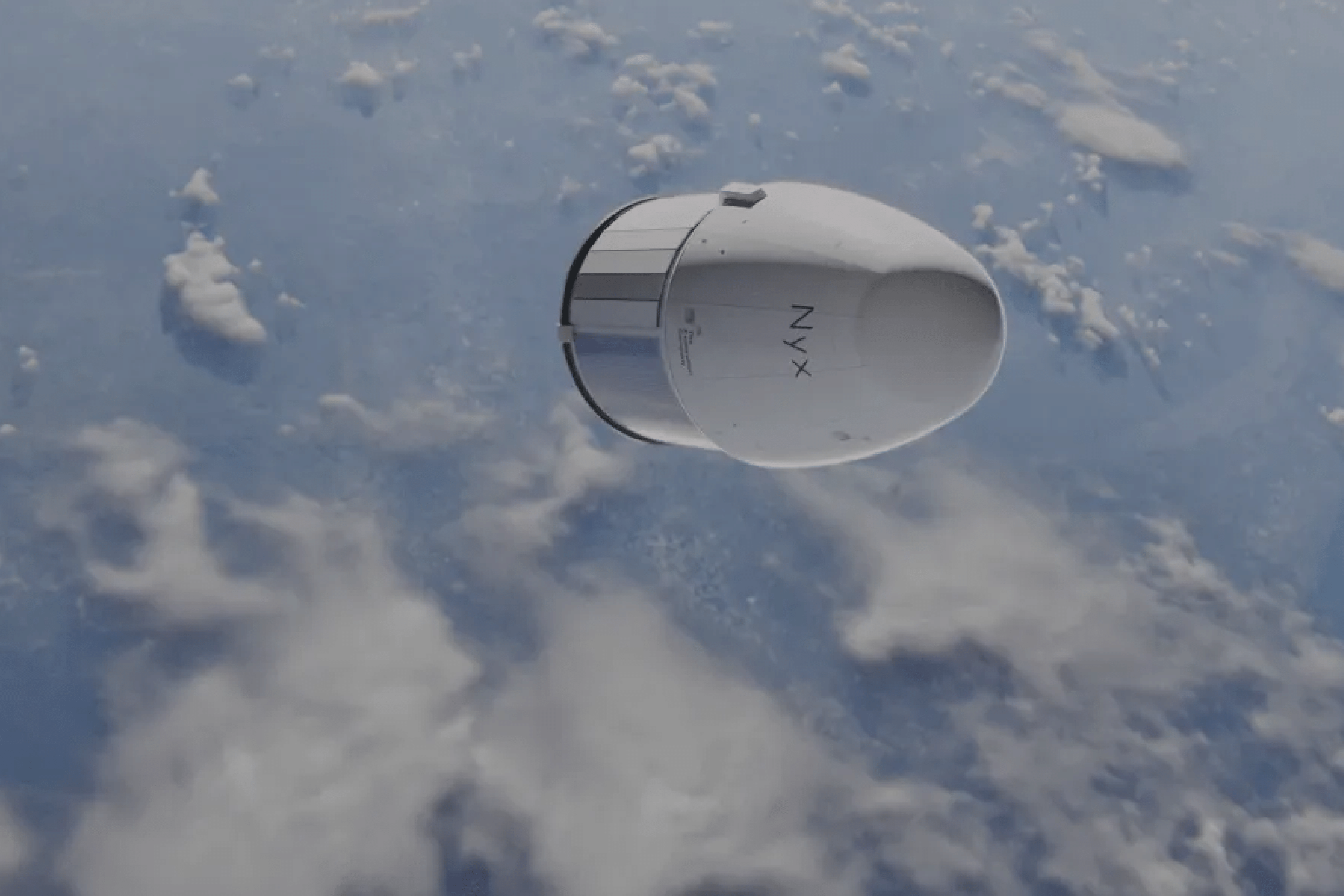
The Exploration Company (TEC), a European aerospace startup, has secured $160 million in Series B funding to develop Nyx, its reusable space capsule designed to carry astronauts and cargo.
The funding round, announced Monday, was led by Balderton Capital and Plural, with participation from French Tech Souveraineté and DeepTech & Climate Fonds, two government-backed funds from France and Germany. This milestone positions TEC as Europe’s contender in a market largely dominated by U.S.-based companies like SpaceX.
TEC’s Ambitious Vision for Nyx
Founded three years ago by aerospace engineers Hélène Huby, Sebastien Reichstat, and Pierre Vine, TEC operates from Germany, France, and Italy.
Nyx, the startup’s flagship product, is designed to deliver up to 3,000 kilograms of cargo to and from space, providing a reusable solution for both governmental and commercial missions. The company has already signed $770 million in contracts, largely from private space station developers like Starlab, Vast, and Axiom Space.
Nyx aims to fill a critical gap in space transportation. Presently, only two companies—both in the U.S.—provide cargo delivery to and from the International Space Station (ISS). TEC envisions Nyx as Europe’s alternative, enabling the region to reduce reliance on foreign solutions. “The world needs more competition,” said TEC’s CEO, Hélène Huby, who emphasized Europe’s need for independent space transportation capabilities.
TEC plans to launch a scaled demonstrator mission, dubbed “Mission Possible,” on a SpaceX Falcon 9 rocket in 2024, followed by a fully operational Nyx flight to the ISS in 2028. The development of Nyx is partly supported by a €25 million ($27 million) contract from the European Space Agency (ESA) for cargo return services, running through 2026. ESA has expressed strong interest in cultivating European space infrastructure, similar to NASA’s early investment in SpaceX’s Dragon capsule.
Huby highlighted TEC’s commitment to delivering on promises, noting the company’s ability to consistently meet targets on cost, timeline, and quality. This reliability has drawn significant commercial and governmental interest. Approximately 90% of TEC’s current contract backlog stems from private sector collaborations, while ESA and other public agencies account for the remainder.
Future of Space Exploration
As international interest in space exploration grows—with projects like NASA’s Gateway lunar space station and increased activity from China and India—TEC positions itself as a key player. “With more people going to space, there’s a growing need for cargo solutions,” Huby explained. TEC also sees potential in offering cargo return capabilities to Earth, a niche with increasing demand.
While acknowledging the achievements of SpaceX, Huby stressed the importance of competition in driving innovation. “We are inspired by what they have achieved. But step by step, we aim to build an alternative,” she said.
The funding boost not only solidifies TEC’s ambitions but also signals a broader push for European leadership in space. By 2028, TEC hopes to establish Nyx as a cornerstone of the region’s space ecosystem, fostering greater independence and expanding the global landscape of reusable space technologies.
Featured Image courtesy of The Exploration Company
Follow us for more tech news updates.
